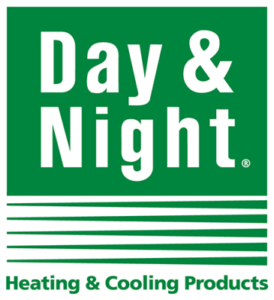Power outages can be stressful, especially during extreme weather conditions, as they often affect the functionality of essential systems like heating and cooling. In such times, it’s crucial to know what actions to avoid to ensure your safety and the longevity of your home’s systems, including HVAC in New Orleans. Here’s a guide on what not to do during a power outage.
1. Don’t Panic or Act Hastily
When the power goes out, it’s easy to feel anxious, especially if the outage occurs during extreme heat or cold. However, panicking can lead to hasty decisions that may compromise your safety. Take a moment to assess the situation calmly. Ensure everyone in your household is safe, and avoid making any sudden moves like lighting candles without proper precautions, as this can increase the risk of fire.
2. Avoid Overusing Generators
While generators are a great backup during power outages, they should be used with caution. Never run a generator inside your home, garage, or any enclosed space. The exhaust contains carbon monoxide, which is a deadly gas. Ensure the generator is placed outside, far from windows and doors, to prevent fumes from entering your home. Additionally, don’t overload the generator with too many appliances at once, as this can cause overheating and damage both the generator and your devices.
3. Don’t Neglect Your HVAC System
During a power outage, it might be tempting to ignore your air conditioning until the power is restored. However, it’s important to turn off your HVAC system to prevent any potential surges when the power returns. Power surges can damage sensitive components in your HVAC system, leading to costly repairs or replacements. Once the power is restored, wait a few minutes before turning your system back on to ensure stability in the electrical supply.
4. Avoid Opening the Refrigerator and Freezer Frequently
One of the most common mistakes during a power outage is frequently opening the refrigerator and freezer. Each time the door is opened, cold air escapes, and the internal temperature rises, leading to faster spoilage of food. Keep the doors closed as much as possible to maintain the cold temperature for longer periods. Most refrigerators can keep food cold for about four hours, while freezers can maintain their temperature for up to 48 hours if unopened.
5. Don’t Use Appliances Until the Power Is Fully Restored
When the power comes back on, there might be a temptation to immediately start using all your appliances. However, it’s wise to wait a bit before doing so. The power supply might be unstable initially, leading to potential surges that could damage your appliances. Start by turning on the essential systems like HVAC in New Orleans gradually and avoid plugging in multiple devices at once.
6. Avoid Leaving Electronics Plugged In
During a power outage, unplug your electronic devices, including computers, televisions, and small kitchen appliances. When power is restored, there could be voltage fluctuations, which might cause damage to plugged-in electronics. Once you are sure that the power supply is stable, you can gradually plug them back in.
7. Don’t Ignore Safety Precautions
Lastly, never overlook basic safety precautions during a power outage. Use flashlights instead of candles to reduce fire hazards. If using space heaters or other alternative heating methods, ensure they are in good condition and follow the manufacturer’s guidelines for safe use. Additionally, stay informed by listening to battery-powered radios for updates on the power situation.
Conclusion
Power outages are inconvenient, but with the right precautions, you can navigate them safely. By avoiding these common mistakes, you’ll protect your home’s systems, like your air conditioning, and ensure your household remains safe during an outage. Remember, preparation is key—have an emergency kit ready and know the steps to take before, during, and after a power outage.

